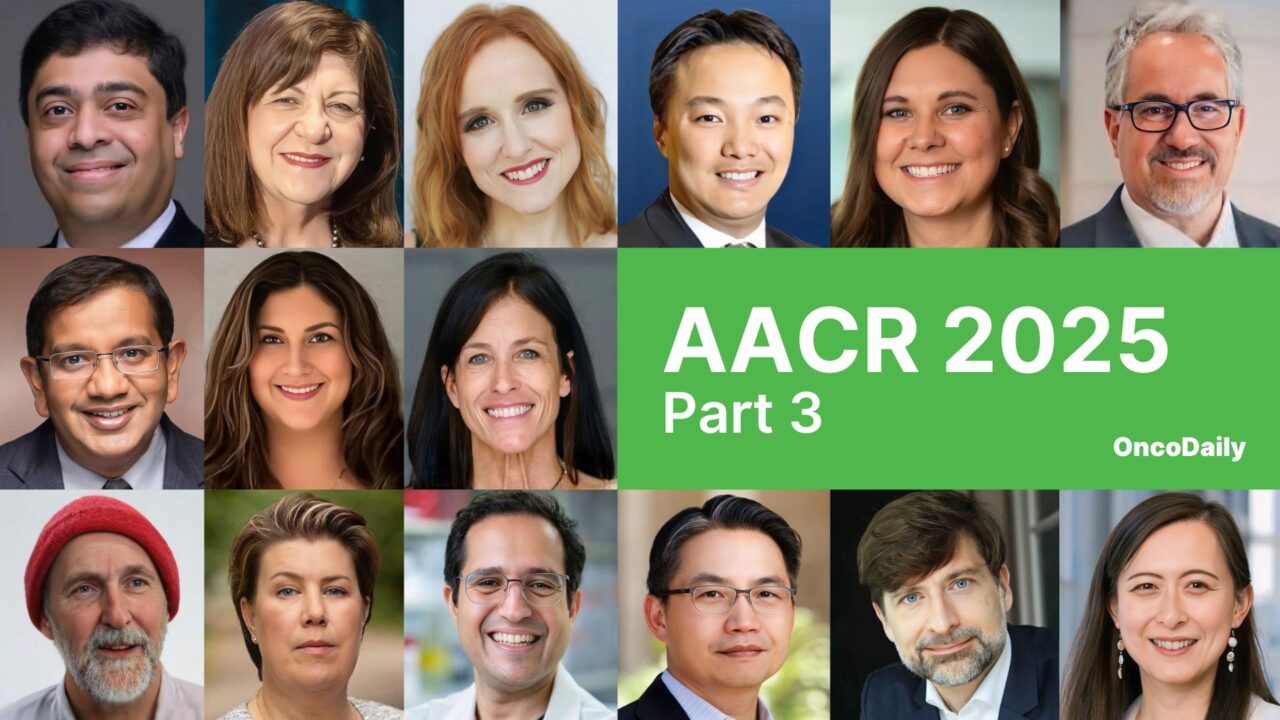
Posts Not to Miss from AACR 2025: Part 3
The AACR Annual Meeting is one of the biggest events in the world of cancer research—bringing together experts, clinicians, and advocates from across the globe to share their latest breakthroughs and ideas. The AACR 2025 meeting is no exception, and it’s been filled with incredible insights, inspiring stories, and cutting-edge research that are sure to shape the future of oncology.
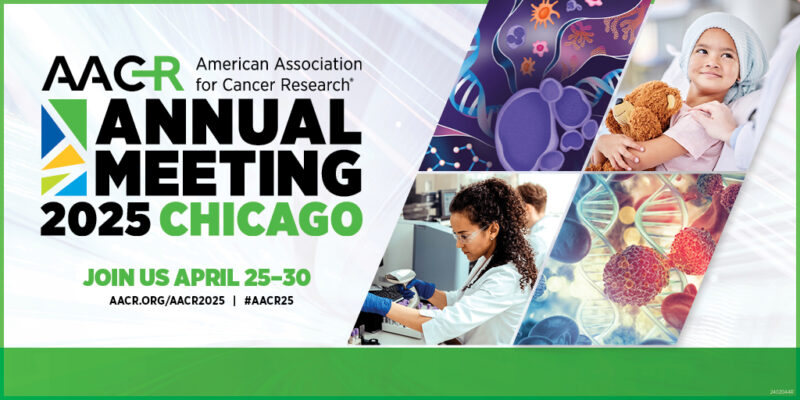
If you’re like us, you’ve been eagerly following the latest developments and breakthroughs shared during the event. From impactful research findings to powerful award lectures, there’s so much to take in. To help you navigate the excitement, we’ve compiled a list of posts you absolutely can’t miss. These highlights are packed with valuable takeaways that will keep you informed and inspired about the future of cancer care.
So grab your coffee (or your favorite go-to drink), and let’s dive into the top moments from AACR25!
“I was thrilled to salute new Lillian Siu at her reception this evening at AACR25. Lillian’s visionary leadership has led to transformative advancements in cancer research and patient care, and we are excited to work with her this year to advance the AACR’s mission.”
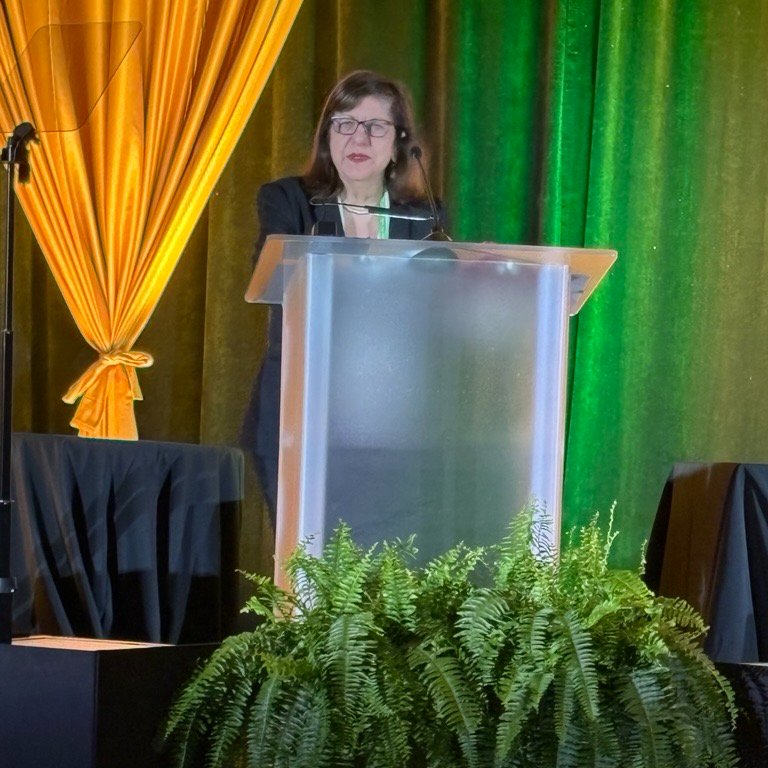
“With more than 22,000 registered attendees, the sharing of great cancer science continued in person and online at AACR25. On X, engagement continued to grow, with nearly 12,000 posts from more than 3,000 users that garnered 421 million impressions.”
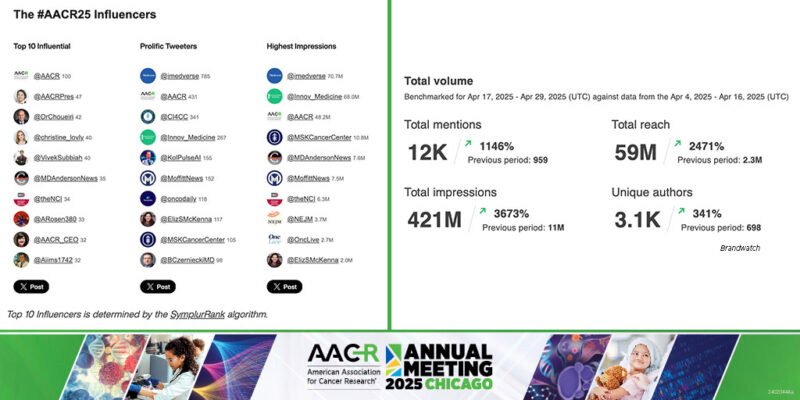
“As part of the American Association for Cancer Research Scientist↔Survivor Program we are grouped in to teams to solve challenge questions. Tonight was our final presentation and I am so thankful for the opportunity to work alongside the incredible advocates of Group 1 over the last week. Shout out to Terlisa Sheppard , Darrell Nakagawa , Lisa Craine, and Marsha Biven. Special thanks to our advocate mentor Bob Riter and scientific mentor Shannon Mumenthaler.
We know cancer is an extraordinarily complex disease and although we have spent decades focused almost exclusively on treating cancer, in recent years cancer research has increasingly focused on detecting cancer very early when it may be possible to stop its growth or prevent it altogether (cancer interception). There are a number of strategies for this new thinking (e.g. vaccines, minimum residual disease (MRD) burden and multiple cancer early detection assays (MCEDs, etc.). Of all these strategies, the MCEDs may be the most interesting as they represent approaches (often driven by Al). It’s early, but these new strategies offer what we all hope for – evidence-based cancer prevention.
We were charged with finding models and examples of MCEDs that showed promise in identifying specific cancers early. MRD is also a valuable tool now used in various ways in treating cancer we identified areas where MRD is making a difference for cancer patients through early detection of recurrence, personalized treatment and improved outcomes.
We are on the precipice of some of the most innovative technologies that can change the lives of patients forever.”
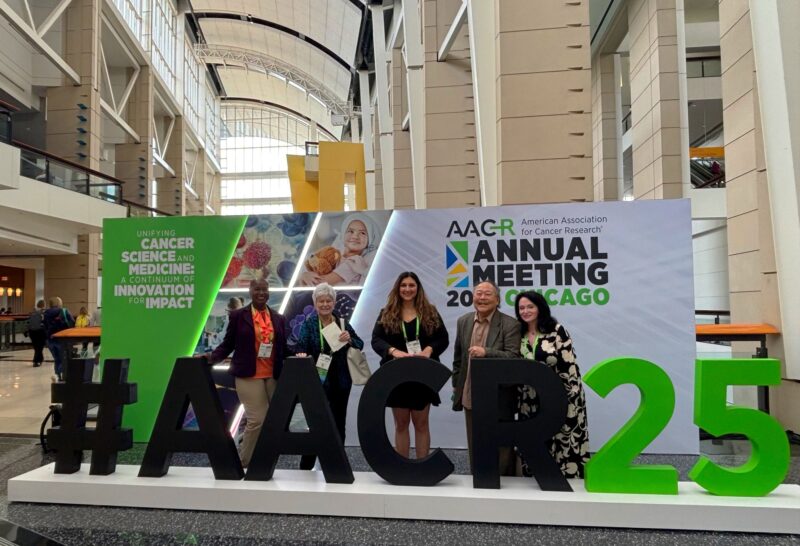
“My thanks to my fellow coinvestigators for giving me opportunity to present our data of D3S_001, a novel KRASG12C inhibitor in G12Ci pre-treated NSCLC at AACR AACR25. The strong and rapid target engagement confers superior efficacy c.f. 1st generation G12Ci.
ORR 30%; DCR 80% in KRASG12Ci pre-treated population.
all responders had detectable KRASG12C ctDNA at baseline with rapid clearance after starting treatment, indicative of the fact that D3S_001 can ‘rescue’ patients who progressed on KRASG12Ci
other cohorts including 1st line treatment, in combination with IO and other therapeutic areas including CRC and PDAC are underway.
Happy to share more details in our simultaneously published NatureMedicine paper ”
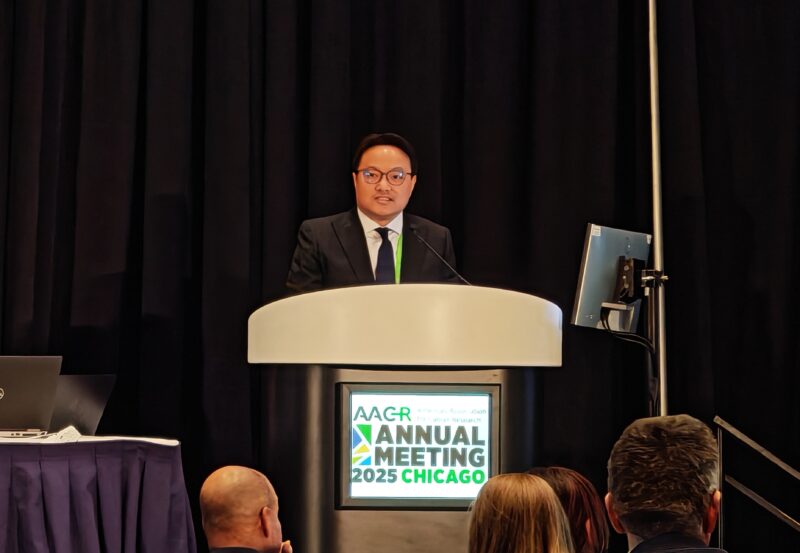
“Science has never brought me to tears until today. This poster was presented at AACR25. The study used a cell line based on paired molecular profiling of biopsies derived from my dear friend Ivy Elkins cancer. Ivy’s voice helped shape research, and now her cells are helping to drive progress – a full circle moment. Thank you Alvaro Guimaraes, for recognizing and honoring Ivy’s memory and contribution to research.”
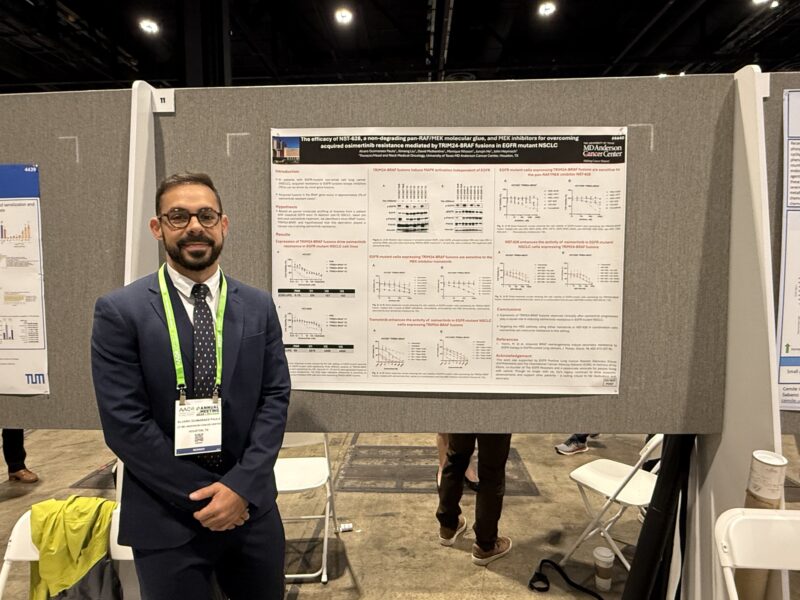
“Happy Birthday to a brilliant colleague + friend, Sandip Patel! Sandip is beloved by the LungCancer community for his quick wit, kind / generous nature, + incredible knowledge base! Glad to celebrate at AACR25!”
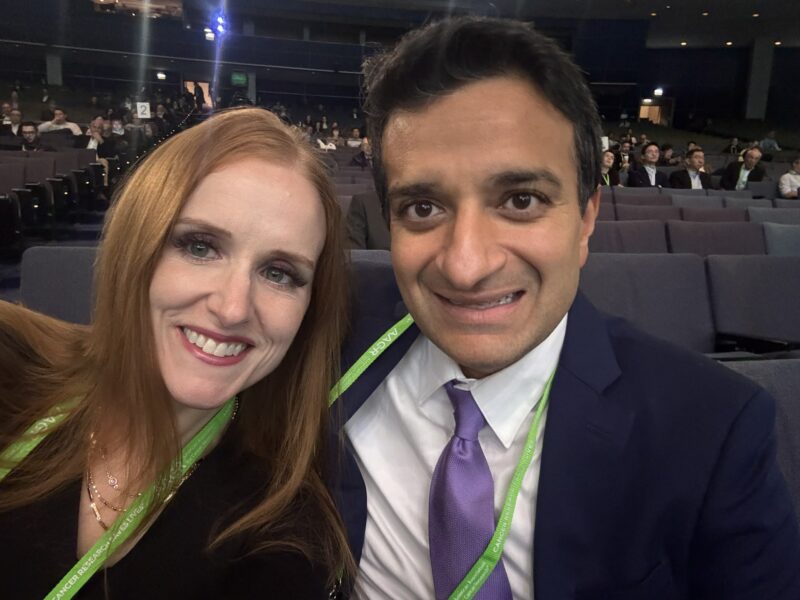
“AARCSSP is a team sport. We get an advocate mentor and a scientific mentor and Jeopardy questions (all at the 500 level.) ours were around precision Oncology. Fantastic team and the only group that nailed the time limit.”
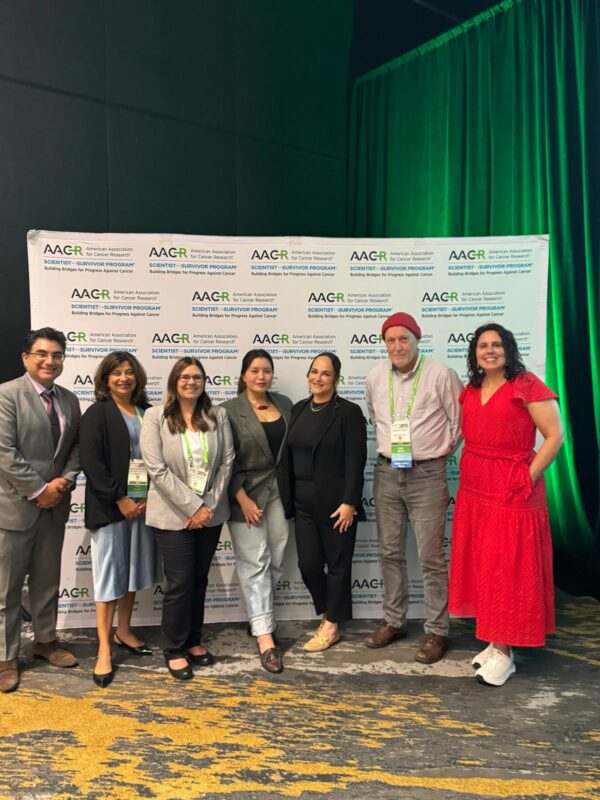
“Congratulations to Vince Bernard-Pagan (incoming RadOnc faculty & PancreaticCancer researcher) for being awarded the AACR
Lustgarten Foundation Career Development Award in honor of Congressman John Lewis. Way to go Vince!”
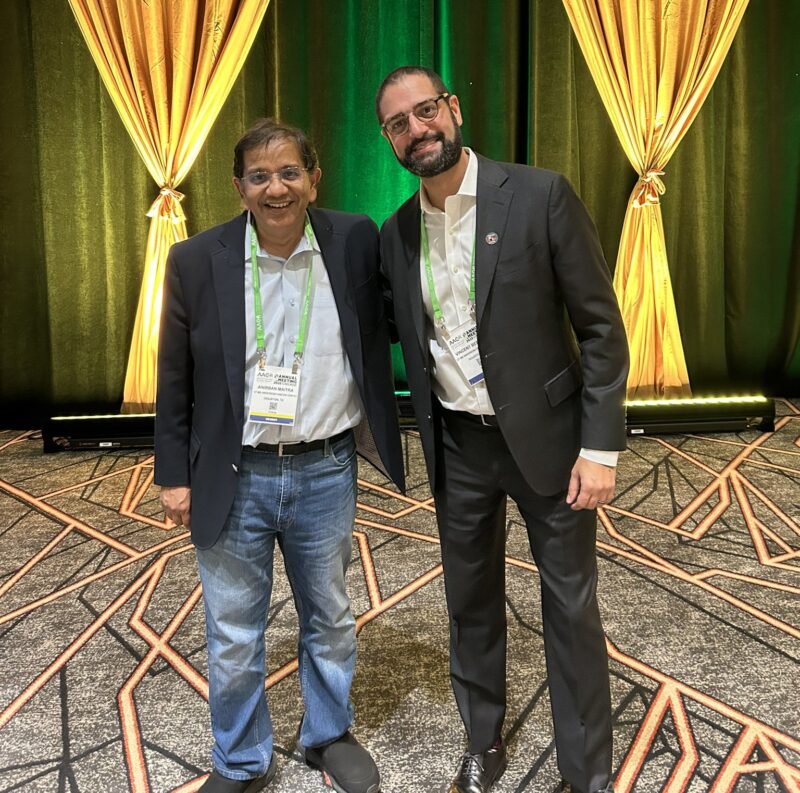
“That’s a wrap on AACR25 in Chicago. Grateful for the chance to reconnect with friends and colleagues while gaining fresh perspective on the evolving landscape of precision diagnostics. The pace of consolidation is accelerating—and so are the strategies driving innovation.
Let’s unlock your potential and let’s Imagine More. Together.”
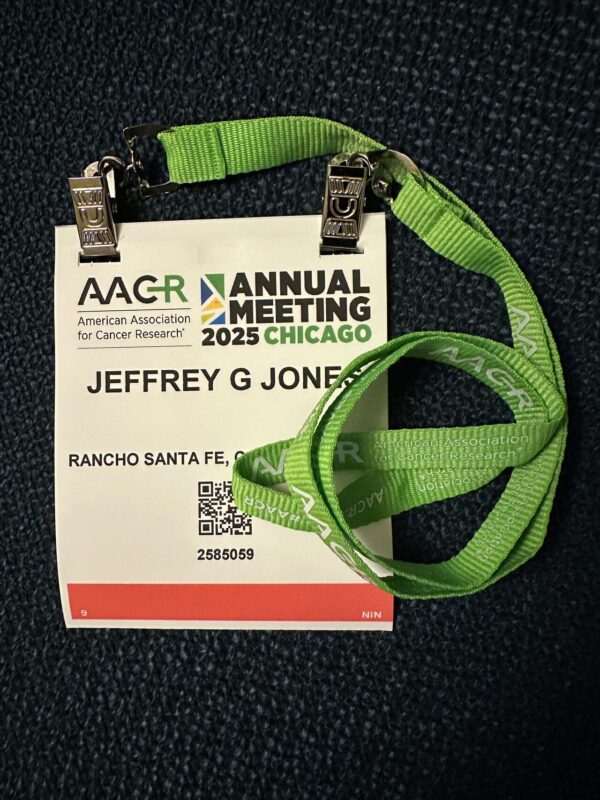
“Last day at AACR25 and Sakthi Srinivasan and Helena Laven will present exciting data from Immuneed
“Inhibition of platelet activation and antibody-dependent cellular cytotoxicity by the tyrosine kinase inhibitor dasatinib in an ex vivo human whole blood system .” (Poster 6835) section 19 board 20
“Accurate prediction of clinical immunotoxicity of oligonucleotide therapeutics using ex vivo circulating fresh human whole blood test system.” (Poster 7276) section 38 board 23″
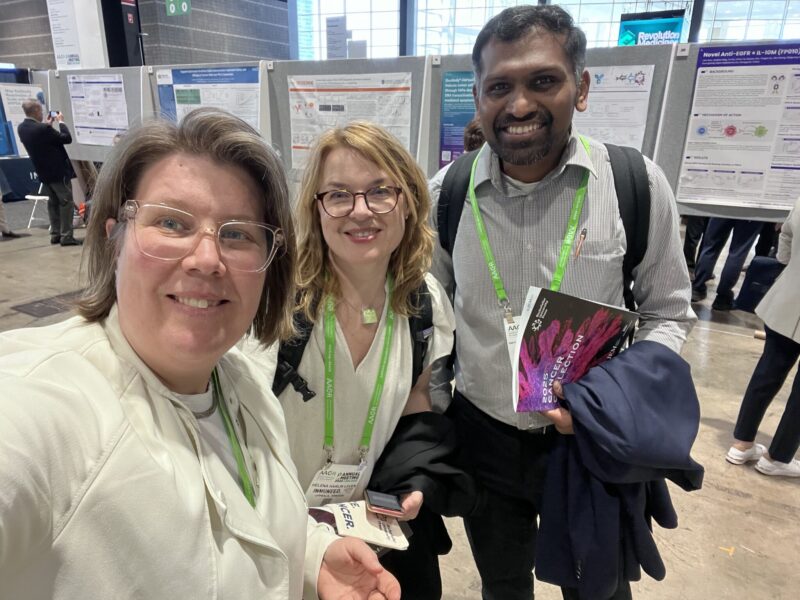
“Fantastic poster at AACR25 by our newest Phase 1 clinical trial oncologist Dr. Deepak Bhamidipati! His first presentation post-fellowship highlights The impact of Project Optimus & FDA guidance on early-phase trial design. Join us in welcoming him to the drug development world”
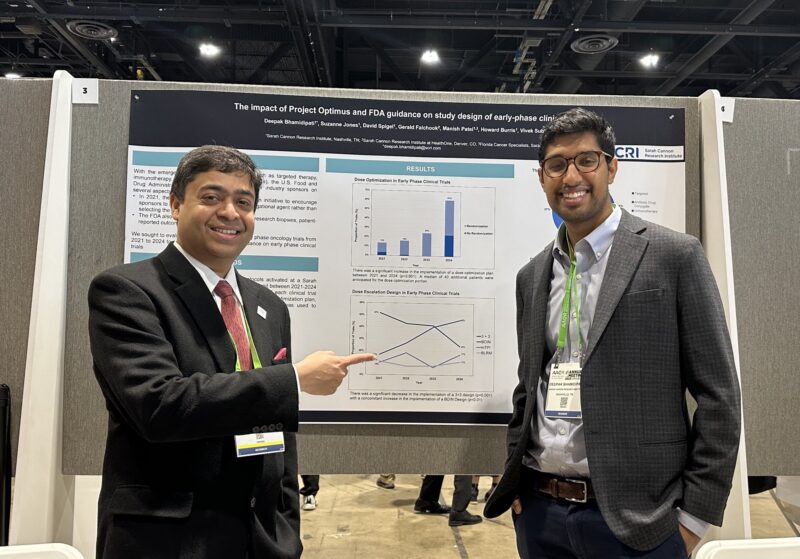
“Being a Cancer Researcher is a deeply rewarding vocation and mission, together we decrease suffering and save lives. I am proud of AACR for tirelessly supporting our next generation!”
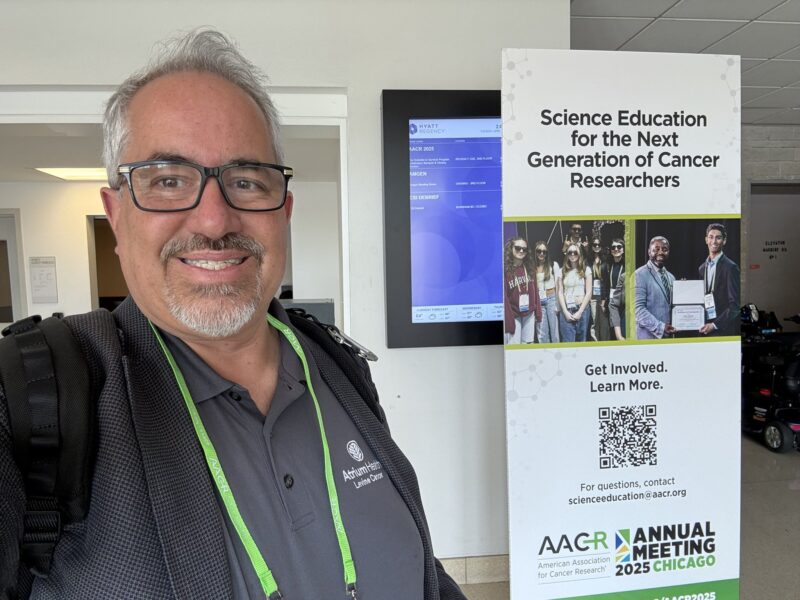
“Great thing about attending in person meetings is the ability to bump into friends and colleagues from around the World!”
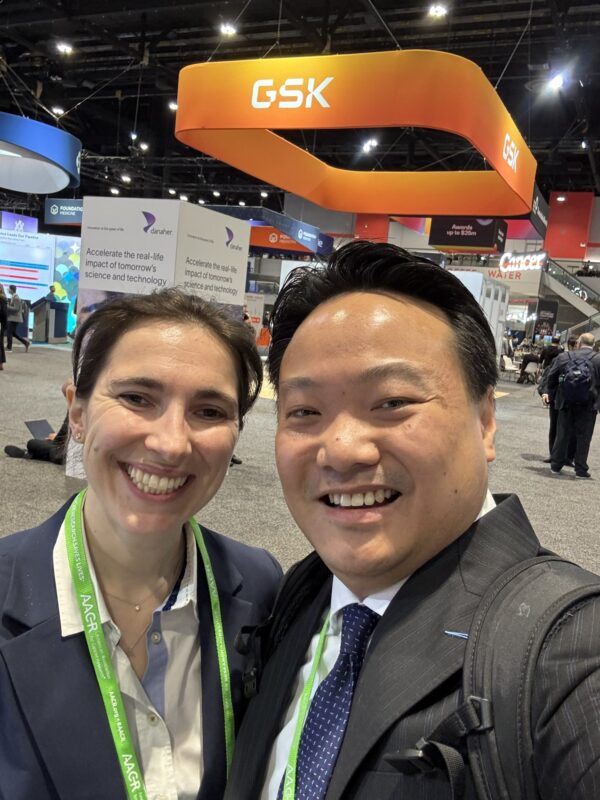
“Look who I found- fellow AACR social media ambassador Pablo Sanchis! I had the honor of judging a postdoc flash talks competition last month at MD Anderson that he competed in. Talk about an excellent science communicator- future is bright with Pablo Sanchis.”
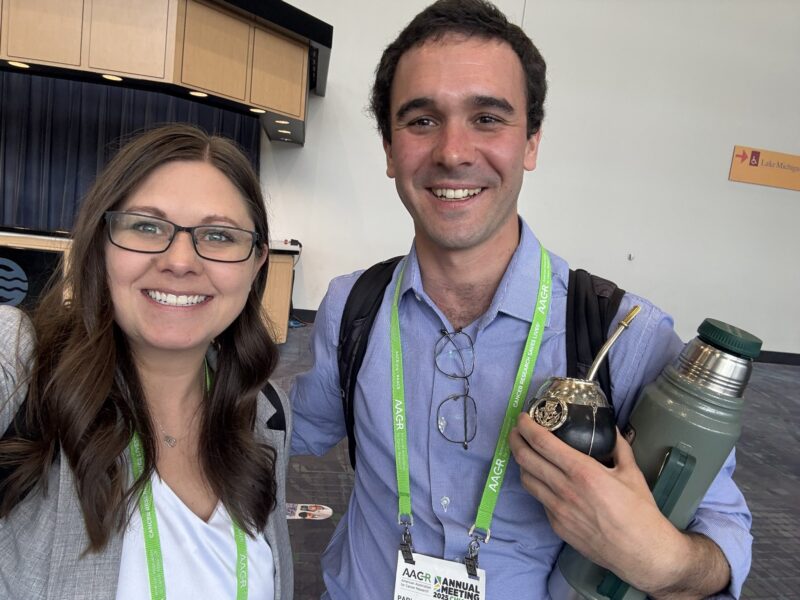
“This year two of our talented Msaouel Lab post-docs, Qian Jing & Kai Yu, co-mentored with Iam Linghua, Giannicola Genovese & JJ Gao each received an AACR scholar-in-training award for kidney cancer research AACR25 honoring their dedication to Cancer Research.”
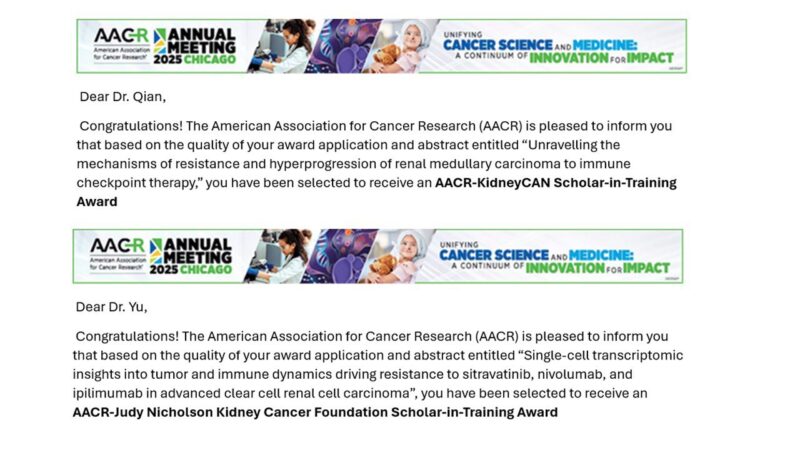
“We are excited to bring 10 Canadian researchers to AACR25 as part of the inaugural AACR-CIHR Scholars-in-Training Awards collaboration.
Last night, they joined other AACR Scholars in being recognized for their hard work and commitment to research.”
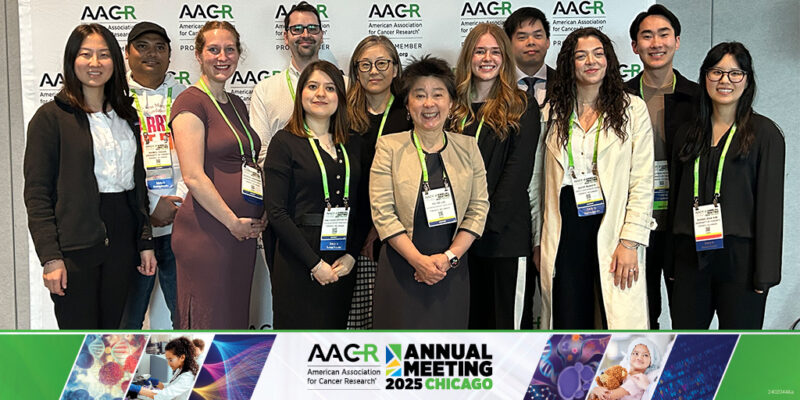
“Pat LoRusso ended her term as AACR President and began her term as Immediate Past President On Monday. At her reception last night, I was happy to have one more opportunity to thank her for her remarkable leadership during a challenging year.”
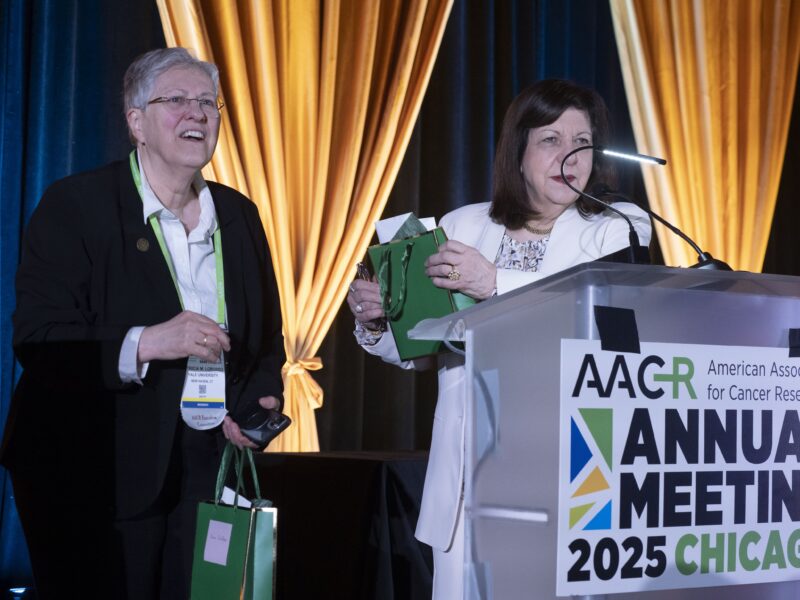
“Thank you, AACR! You did it again!
You united us with purpose, resilience, courage, and a sense of belonging to our community. Thank you, Margaret Foti, CEO of AACR, for rallying us all to action for cancer research. Thank you, Patricia LoRusso, President of AACR, for your leadership in the past year and for reminding us that cancer knows no borders. Thank you to the 21,000 researchers from 82 countries who were present, and the 59,000 researchers from 142 countries who are members of this community united by the same vision of AACR: “cancer research saves lives”.
I have been a proud member of this community for 27 years now, since 1998. I also thank all who came to our poster about our computational solution, which we want to deliver to this community of doctors and researchers. Special thanks to my dear friends, William T Beck, Christophe Le Tourneau, and Arkadiusz Dudek, for allowing me to share this photo I love.
Special thanks also go to our team at Genomate Health and all collaborators worldwide who help us contribute to the mission we all share to save lives. Thank you, American Association for Cancer Research, for organizing this fantastic event for us!”
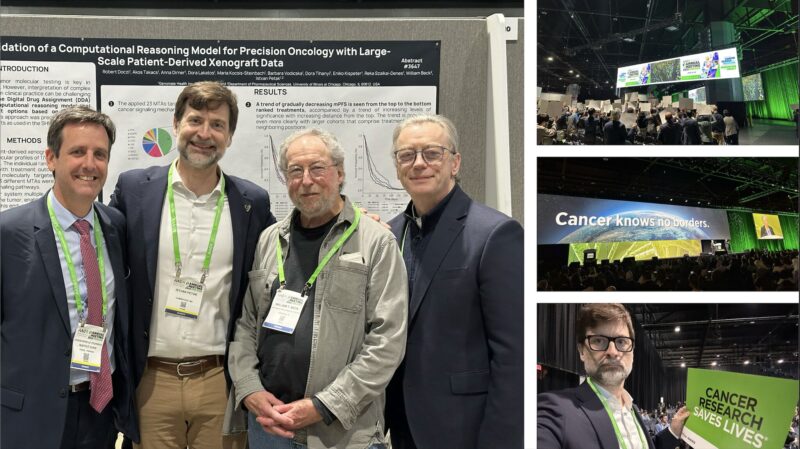
Manchester Cancer Research Centre
“Monday AACR25 highlights! Yesterday saw Manchester cancer researchers present in Chicago at the AACR conference with our highlights including:
- Director of the MCRC, Professor Robert Bristow chairing the presidential Select Symposium: Leveraging Science to Reduce the Cancer Burden Worldwide.
- Dr Santiago Zelenay delivered a talk on the “COX-2/PGE2 axis: a dominant pathway underlying cancer immune evasion”.
- Professor Caroline Dive. CBE delivered an excellent “Meet the Expert” session focused on studying metastasis in small cell lung cancer.
- And Rachel Chown presented her poster covering her work investigating the drivers of cancer genomics research productivity in HICs and LMICs, and interventions to close the gap.
Fantastic to see so much Manchester research presented at AACR 2025 with more to come in the coming days! And a special thank you to Rachel Chown and Professor Robert Bristow for the photos!”
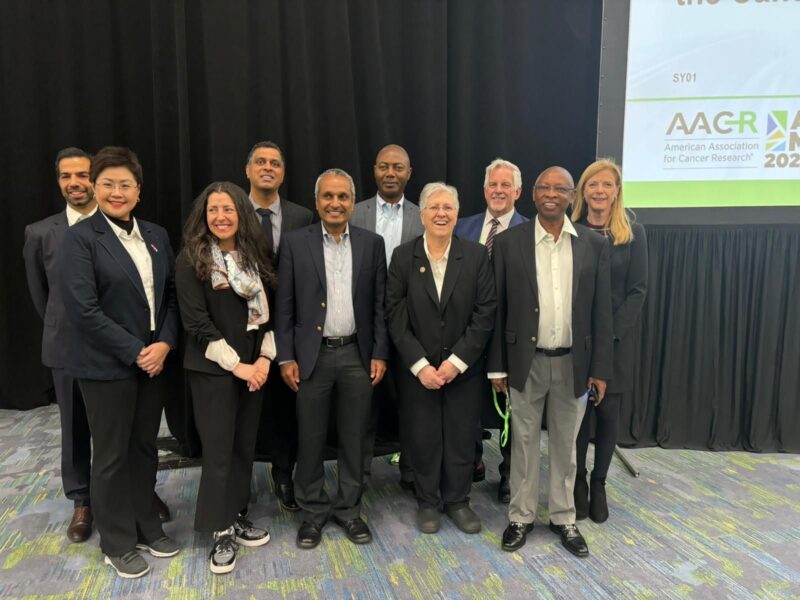
“KRAS mutations are among the most prevalent drivers of cancer and were long considered “undruggable.” Yet researchers persisted for more than 40 years, leading to the approval of two treatments targeting the KRAS G12C mutation. However, G12C is just one of several oncogenic KRAS mutations, which prompted Amgen’s team to ask whether allosteric KRAS G12C inhibition could serve as a foundation for targeting other KRAS mutants.
At this year’s annual meeting of the American Association for Cancer Research (AACR), we proudly shared the first data for our investigational orally bioavailable pan-KRAS inhibitor.
The journey to this milestone was far from easy. Each step forward brought new challenges, but extraordinary, seamless collaboration across multiple research teams yielded structural insights that guided medicinal chemistry innovations. This ultimately led to the discovery of a molecule with dual-state inhibition, KRAS selectivity and favorable pharmacokinetic properties.
I joined Amgen as Chief Scientific Officer to make a meaningful impact. I’m incredibly proud of my colleagues and the elegant science behind this molecule — and I’m thrilled that this discovery is now progressing to clinical trials.”
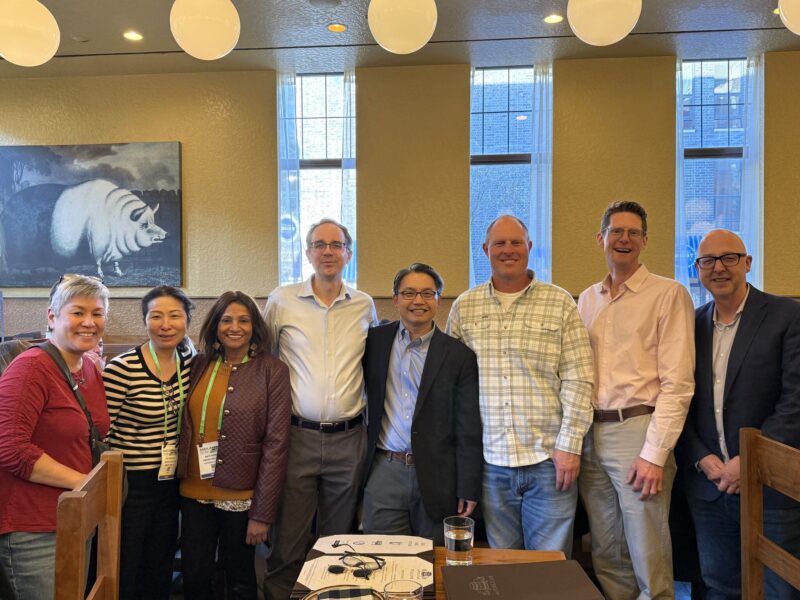
The AACR 2025 meeting is full of incredible breakthroughs, and there’s so much more to discover. Keep the conversation going, share this post, and let’s continue pushing the boundaries of cancer research together.
For more insights and updates, don’t forget to follow OncoDaily! Stay tuned for what’s next!
By: Md Foorquan Hashmi, MD, Sr. Editor, OncoDaily: India Bureau
-
Challenging the Status Quo in Colorectal Cancer 2024
December 6-8, 2024
-
ESMO 2024 Congress
September 13-17, 2024
-
ASCO Annual Meeting
May 30 - June 4, 2024
-
Yvonne Award 2024
May 31, 2024
-
OncoThon 2024, Online
Feb. 15, 2024
-
Global Summit on War & Cancer 2023, Online
Dec. 14-16, 2023
